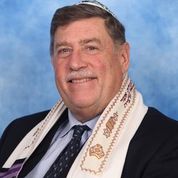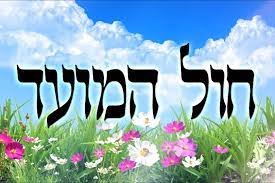
When you Choose Shabbat, you choose to learn that every Shabbat is different and special. This week I learned that Parashat Vayeshev (Genesis 37:1 through 40:23), the ninth weekly Torah portion in the annual cycle of Torah readings. According to Wikipedia, Vayeshev contains 5,972 Hebrew letters, 1,558 words, 112 verses and 190 lines of the Torah Scroll. Vayeshev (וַיֵּשֶׁב), translated as “and he lived“, tells of how Jacob’s other sons sold Joseph into captivity in Egypt, how Judah wronged his daughter-in-law Tamar who then tricked him into fulfilling his oath and how Joseph served Potiphar and was imprisoned when falsely accused of assaulting Potiphar’s wife.
Rabbi Michael D Klein of Temple Torat Emet offers his insights on this week’s Torah reading, Vayeshev:
The dynamic which began in last week’s portion, continues into Veyeshev. Jacob, who should have known better about favoring one child over others, sets up a dynamic of jealousy which results in Joseph being sold three times before he is finally transported to Egypt to become Potifar’s house slave.
If one were to describe how each of the characters in this play change as the story unfolds, they would probably point out that each of them undergo dramatic psychological transformation in response to the challenges they face. Joseph transforms from a spoiled and self-centered child, to become a mature and responsible leader of his people. His brethren, especially Judah, become humbler as they begin to finally take responsibility for the terrible act of selling their brother into slavery. Jacob, sadly, lives his life, grieving for his lost son and for his beloved wife, Rachel who dies on the way to Bet Lechem and is buried on the way. Perhaps, he is feeling guilty that, under the circumstances, he could have done more to protect his son from the obvious disdain and jealousy of his brothers.
We learn many lessons from the dramatic story, mostly, about how the events of our lives change us and shape our character. No one is immune from change. What is most important, is how we react and respond to our experiences using the emotional tools we are given and those we develop. We pray for the strength to deal with challenges that life brings our way. Reading the narrative of this week’s Sedra teaches us that our ancestors also were faced with many challenges and we must learn from their lessons the do’s and don’t’s about how to cope and grow as human beings.
Rabbi Michael D. Klein attended Yeshiva College of South Florida and served as Torah Reader, Hebrew teacher, Chazzan and spiritual leader of various synagogues throughout South Florida. In January 2015 he became Ritual Director, Bnai/Bnot Mitzvah instructor and 7th grade Hebrew instructor for Temple Torat Emet of Boynton Beach. In October 2019 he was accepted into an accelerated track and received his shicha from Yeshiva Adath Wolkowisk and has been the Rabbinic leadership of Temple Torat Emet since August 2020. In September of 2022 he was appointed Rabbinic and Spiritual Advisor of the Florida Region of FJMC.
Choose Shabbat; choose to celebrate, to light candles, sing songs and learn a little Torah.
This moment of Jewish learning is brought to you by the Florida Region of the Federation of Jewish Men’s Clubs. We serve the needs of Jewish Men’s Clubs and Brotherhoods throughout the State of Florida. If you are not yet affiliated with the Federation, then today is the day to join us.
Get to know more about the FJMC Florida Region and our growing statewide network of Jewish Men’s Clubs and Brotherhoods at www.floridaregionfjmc.org and please visit and LIKE our Florida Region FJMC Facebook Group at www.facebook.com/FloridaRegionFJMC.






